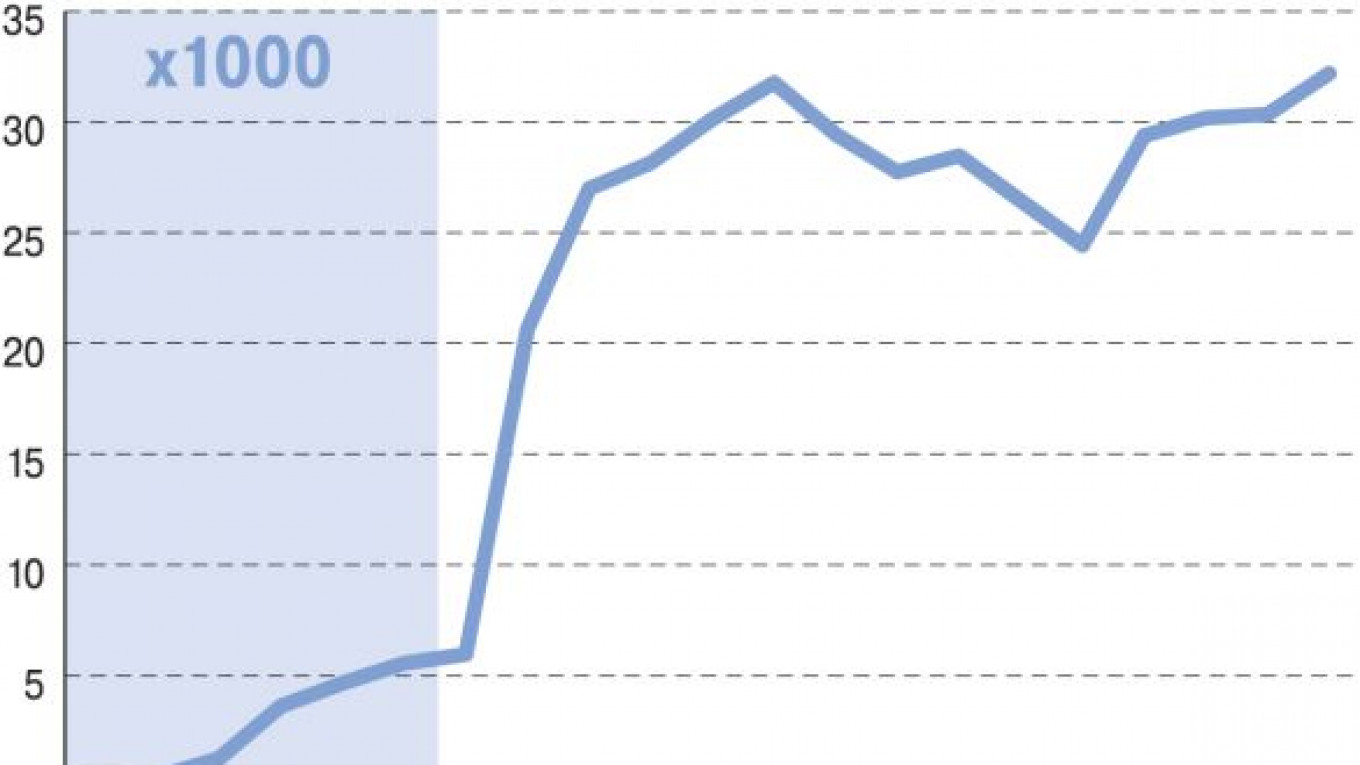Twenty years ago, on Jan. 1, 1992, the buying and selling of foreign currency was legalized and the ruble regained a market value.
This landmark moment in the history of the 500-year old currency was a key step in the dismantling of the Soviet economy. Owning or trading foreign currency was illegal under communism and at one point had been punishable by death.
The ruble was volatile in its early years and a major financial crisis in 1997 precipitated its collapse, forcing the Yeltsin government into devaluation. From Jan. 1, 1998, 1,000 rubles became 1 ruble.
Since 1992, the ruble-dollar exchange rate has been regulated by the Central Bank, which will use its foreign currency reserves to intervene in the case of sharp rises or falls by buying or selling rubles.
The last 10 years of high crude prices and political stability under Vladimir Putin have seen only relatively minor fluctuations in price relative to the greenback. In recent days, the geopolitical tensions in the Middle East and concerns about oil price increases have boosted the Russian currency, with the ruble strengthening Tuesday to 31.66 against the dollar.
The Central Bank sold $1.77 billion and 192 million euros ($246 million) in December, the biggest combined total since October, the regulator said in a statement on its web site Tuesday, Bloomberg reported.
The figures were higher than in November, when the regulator sold $1.39 billion and 131 million euros, according to the statement.
A Message from The Moscow Times:
Dear readers,
We are facing unprecedented challenges. Russia's Prosecutor General's Office has designated The Moscow Times as an "undesirable" organization, criminalizing our work and putting our staff at risk of prosecution. This follows our earlier unjust labeling as a "foreign agent."
These actions are direct attempts to silence independent journalism in Russia. The authorities claim our work "discredits the decisions of the Russian leadership." We see things differently: we strive to provide accurate, unbiased reporting on Russia.
We, the journalists of The Moscow Times, refuse to be silenced. But to continue our work, we need your help.
Your support, no matter how small, makes a world of difference. If you can, please support us monthly starting from just $2. It's quick to set up, and every contribution makes a significant impact.
By supporting The Moscow Times, you're defending open, independent journalism in the face of repression. Thank you for standing with us.
Remind me later.






